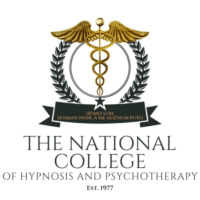
This procedure is available to anyone contracted in any way to the NCHP or NSTT who feels aggrieved by anyone else so contracted, this includes team (or society) members and students.
A grievance may concern the general conduct, decisions made or manner in which they carry out any roles within the NCHP or NSTT, or interaction with others from within. The intention is to
conciliate issues and problems without resort to sanction and we always aim for resolution by negotiation and/or mediation, wherever appropriate and possible.
Unless both parties agree otherwise, the grievance shall be treated as confidential. Any person raising a grievance or assisting with information in connection with a grievance must not be
victimised nor harassed in any way by any party. This procedure does not limit the aggrieved’s rights of access to any other procedure, e.g. a tribunal.
The grievance shall be dealt with as quickly as possible and each level shall be limited to 28 days, except where circumstances preclude that.
Information gathered during the course of the grievance procedure shall be assessed on the balance of probabilities test.
If at any stage it becomes clear that the grievance is of such a serious nature that it may constitute a breach of the applicable code of ethics then the full complaints procedure shall be adopted. The grievance procedure has two levels:
At Level I:
Those concerned will be invited by a senior member of the NCHP or NSTT to give their side of the story by phone. If appropriate a meeting (live or by phone) may be called where the parties can
air their differences and try to achieve a resolution of the grievance. Where possible the senior member should ascertain beforehand whether there is any misunderstanding or issue that can easily be resolved. If resolution is not possible then the grievance should move to level 2.
At Level 2:
A written account of the grievance shall be sought and a response invited from the respondent. The written response shall then be offered to the aggrieved member for comment. If the response does not satisfy the aggrieved member then any further comments on the shortcoming of the response may be offered to the respondent. If the respondent is unable or unwilling to offer any supplementary response that answers all the issues raised then parties to the grievance shall be given the choice of the complaints procedure or mutually agreed termination of this procedure.
